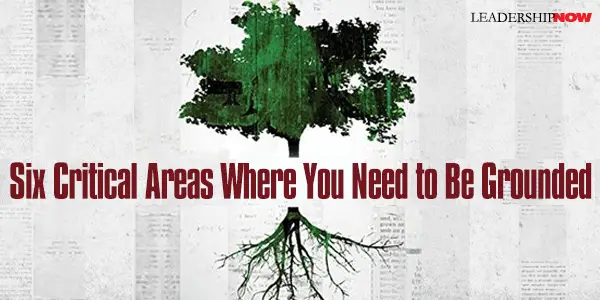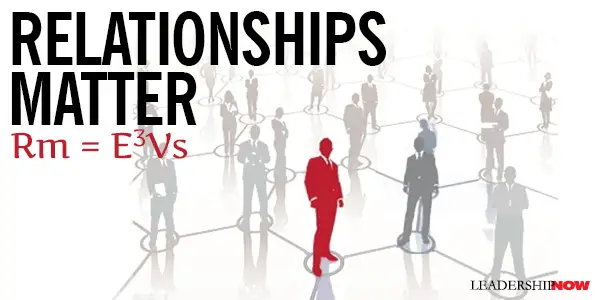 Leading Blog | Posts by Month |
 Leading Blog | Posts by Month |
07.31.14

LeadershipNow 140: July 2014 Compilation
See more on
Posted by Michael McKinney at 07:46 AM
07.28.14

8 Shifts Young Leaders Need to Make
I WAS STANDING in a hotel lobby waiting on my buddy to get some coffee before we were headed out for a day at a conference we were working. I was standing against the wall with my computer bag on my back. We were running a little late, so on the spur of the moment, I decided I'd go get the rental car and bring it to the lobby's front door. As I stepped away from the wall, I had no idea the pandemonium that would ensue. Apparently my bag had gotten caught on the fire alarm in the hotel lobby. In an odd case of events, when I stepped away from the wall, the fire alarm went off and people began to scatter. The hotel lobby that was rather full of folks eating breakfast and enjoying their morning coffee suddenly began to empty as people began to look around and evacuate the lobby. You see, that's what happens when alarms go off, people move. For the next generation, an alarm of sorts is going off. An alarm that, if ignored or simply silenced, will continue to get louder and louder. An alarm that, if left unanswered, could mean serious trouble for the next generation and our world as we know it. Poverty rates have never been higher, unemployment rates are astronomically high, and people are hurting all over our world. Children are being abandoned by parents that have other priorities and people are willing to kill over hearsay and gossip. Our culture is in need of young leaders that are willing to not just silence the alarm with quick fixes but sustain lasting change in the world we live in. We need young leaders that can rally people around them and begin bringing people together for lasting change. How can we answer the alarm? By making some shifts in our lives and in our leadership in order to help lead lasting change in our society. Here are 8 shifts that we need to make as young people in order to set ourselves up to lead well now and in the future. From Entitlement to Honor From Unreliable to Consistent From Dissension to Cooperation From Conformity to Integrity From Pride to Humility From Passive to Passionate From Selfishness to Love From Premature to Patient We can make the shifts as a generation. We can answer the alarm and change the world for our kids and their kids. The question is, "Are you willing?"  
Posted by Michael McKinney at 06:58 AM
07.24.14

What it Takes to be an Entrepreneurial LeaderIf success for entrepreneurial success is to get your enterprise to the point where it is self-sustainable, then most people fail. But they don’t have to. Given the proper skills and insights, most entrepreneurs can become successful or what Derek Lidow calls entrepreneurial leaders. He discusses these ideas in Startup Leadership and is based on his popular course at Princeton University. Enterprises go through four stages of maturity—customer validation (a product or service that someone is willing to pay for), operational validation (deliver and satisfy the customers), financial validation (financial security under changing market and competitive conditions), self-sustainability (creating a process of innovation that enables the enterprises to be renewed)—and entrepreneurial leaders must grow with them. Stage four should not require the founder. To be able to meet the needs of the enterprise, the entrepreneur must be able to demonstrate five skills, consistently in high-stress situations: self-awareness, facility with the basics of the business, relationship building, motivation, and leading change. Lidow says that an entrepreneurial leader does not need to be the best in each of these skills but shout have mastered them to the point that they are beyond simply competent. Self-awareness is the key and probably the hardest of them all. It is crucial to get this right because personal accountability is an extension of it. In any situation, but certainly when a crisis occurs, entrepreneurial leaders “ask themselves how they need to change to make the situation better, not how to get everyone around them to act more like them.” Lidow continues, “Self-awareness is important in times of crisis, to the extent that it helps entrepreneurs understand that their traits, motivations, and skills make them vulnerable to repeatedly making certain types of mistakes. Without this level of self-awareness they are unprepared to change and do not recognize when they make crises worse.” And you see this very thing played out from time to time in organizations because some leaders are more concerned about being the leader than they are about the growth and survival of the organization. Which bring us to another point Lidow makes. He says that all entrepreneurs are selfish. Initially it’s all about you. And it’s understandable because entrepreneurship is far more demanding and requires greater sacrifices than many imagine. But you have to be selfish enough to be selfless. That means that you need to be dispassionate enough to do what is right for the business even if it isn’t your personal preference. You serve the business—not the other way around.

Posted by Michael McKinney at 10:33 PM
07.14.14

Six Critical Areas Where You Need to Be Grounded
GOOD LEADERS are healthy leaders. We can’t separate our leadership from who we are inside. “Your well-being, success, and organization depend, first and foremost on who you are. You need to examine the internal stuff—what goes on in your mind and heart—before doing anything,” writes Bob Rosen in Grounded.Faced with the speed of change today, staying aligned with who we are is very difficult making us feel stressed and defeated. We can deal with the winds of change in one of three ways: ignore the change, deal with it head on with uninformed short-term fixes, or get ahead of it. Those ignoring the situation often “adapt a rigid attitude toward personal change, avoiding introspection or soul-searching that might threaten long-held values or unexamined results.” Those who get ahead of it are not only flexible but are personally grounded. Rosen says that great leaders are grounded in six areas: Physical Health / How You Live: Not just the absence of disease but the presence of health. “Strong personal health begins with body-mind awareness, which gives you the personal insights and knowledge to develop a healthy lifestyle specially tailored for you.” Emotional Health / How You Feel: Having good self-awareness. “Emotionally healthy leaders have a nimbleness, evident in their reactions, thinking and behavior.” Intellectual Health / How You Think: Having a good curiosity so that you can break out of your mental comfort zone. “By expanding your mental range, you can broaden your thinking, solve complex problems, and focus on what is truly important.” Social Health / How You Interact: The ability to build mutually rewarding relationships while being true to yourself – transparent and connected. “Leadership follows an inside-outside progression. Social health starts with authenticity, advances to mutually rewarding relationships, and culminates in nourishing teams and communities.” Vocational Health / How You Perform: Meaningful work that reflects who you are. “A company led by an ill-equipped leader soon falls behind in the race for talent and productivity. Now more than ever, people are yearning for leaders to create the conditions that enable others to excel and to reach their full potential.” Spiritual Health / How You View the World: The ability to recognize a higher purpose and something more meaningful than your personal needs. It’s connecting at the macro level. “On a personal level, individuals become alienated, rootless, and self-destructive. A business devoid of spiritual health promotes elfish, parochial, and narrow financial interests above humanity and social responsibility.” Rosen says that these six areas are part of a system of health and if one of these subsystems is out of line, the entire system can come undone. “Poor leadership is a failure or breakdown of the whole or of part of the system.” Rosen deals with each of these areas addressing the key issues of each, identifying where you need work, and how to develop and master each of them. The process requires self-awareness, disciple and the conscious choice to take the steps to achieve desired outcomes. 
Posted by Michael McKinney at 10:56 PM
07.10.14

Relationships Matter
“At the center of every success,” writes Brian Church in Relationship Momentum, “you will find a pivotal relationship. Conversely, you can trace the cause of most failures to a relationship vacuum or breakdown.” Relationship Momentum is a book about how to create momentum for moving your ideas (or your career) forward. Church begins by stressing that at the foundation of any success is relationships. It explains why seemingly less skilled or talented people can blow right on by their more gifted peers. Or why an inferior idea might dominate over your “better” idea. The resulting resentment and frustration tends to turn our focus “more inward and non-relational” and any relationship momentum is diminished.“The tendency is to think that personal success and personal performance is a ‘self-thing,’ when, in fact, it is a ‘relationship thing.’” We need to be very intentional about our relationships. Whether you are stuck, stagnant or haven’t started, Church offers and explains a formula – Rm = E3Vs (Relationship Momentum equals the product of Brand, Value, and Ambassador Equities times Strategic Velocity) – for gaining traction and building momentum for your ideas throughout the book. He explains why frequent course corrections kill momentum; why we need to stop starting over; why your ideas need to be packaged in a way that is easily transferable; why your ideas need ambassadors; and why organizations that are wrapped up in creating their own reality, that is to say, convinced of their own superiority, are of little value. Some good advice on strategy and tactics: Your strategic objective is always a single direction. It is a vector that points to where you want to end up. A tack or tactic will often veer off temporarily into another direction in order to catch a prevailing wind. For instance, your goal is to provide advice for a fee to potential investors. Veering off to obtain a master’s degree in financial planning is your tack. Though it may be a longer distance to travel, that tack is nonetheless the most efficient course. 
Posted by Michael McKinney at 11:56 AM
07.01.14

First Look: Leadership Books for July 2014Here's a look at some of the best leadership books to be released in July.




For bulk orders call 1-800-423-8273  Build your leadership library with these specials on over 118 titles. All titles are at least 40% off the list price and are available only in limited quantities.
Posted by Michael McKinney at 08:56 AM
|
BUILD YOUR KNOWLEDGE


How to Do Your Start-Up Right STRAIGHT TALK FOR START-UPS 
Grow Your Leadership Skills NEW AND UPCOMING LEADERSHIP BOOKS 
Leadership Minute BITE-SIZE CONCEPTS YOU CAN CHEW ON 
Classic Leadership Books BOOKS TO READ BEFORE YOU LEAD |
|